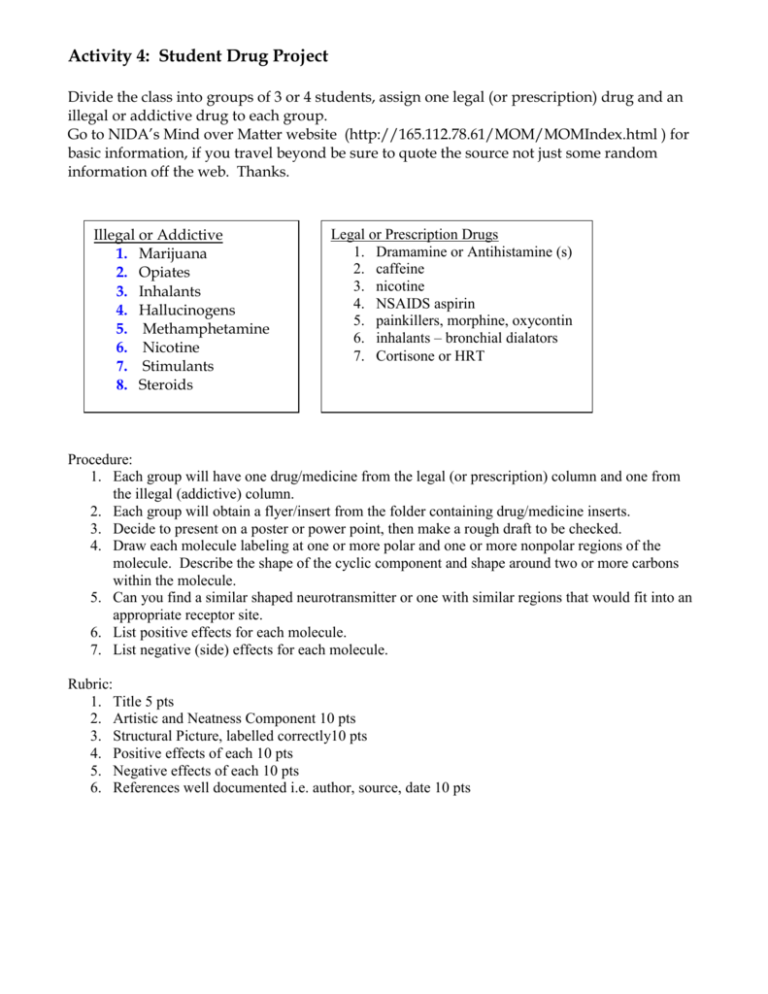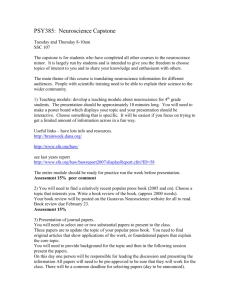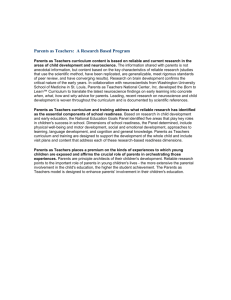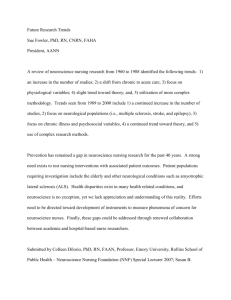4 Student Drug Proje..
advertisement

Activity 4: Student Drug Project Divide the class into groups of 3 or 4 students, assign one legal (or prescription) drug and an illegal or addictive drug to each group. Go to NIDA’s Mind over Matter website (http://165.112.78.61/MOM/MOMIndex.html ) for basic information, if you travel beyond be sure to quote the source not just some random information off the web. Thanks. Illegal or Addictive 1. Marijuana 2. Opiates 3. Inhalants 4. Hallucinogens 5. Methamphetamine 6. Nicotine 7. Stimulants 8. Steroids Legal or Prescription Drugs 1. Dramamine or Antihistamine (s) 2. caffeine 3. nicotine 4. NSAIDS aspirin 5. painkillers, morphine, oxycontin 6. inhalants – bronchial dialators 7. Cortisone or HRT Procedure: 1. Each group will have one drug/medicine from the legal (or prescription) column and one from the illegal (addictive) column. 2. Each group will obtain a flyer/insert from the folder containing drug/medicine inserts. 3. Decide to present on a poster or power point, then make a rough draft to be checked. 4. Draw each molecule labeling at one or more polar and one or more nonpolar regions of the molecule. Describe the shape of the cyclic component and shape around two or more carbons within the molecule. 5. Can you find a similar shaped neurotransmitter or one with similar regions that would fit into an appropriate receptor site. 6. List positive effects for each molecule. 7. List negative (side) effects for each molecule. Rubric: 1. Title 5 pts 2. Artistic and Neatness Component 10 pts 3. Structural Picture, labelled correctly10 pts 4. Positive effects of each 10 pts 5. Negative effects of each 10 pts 6. References well documented i.e. author, source, date 10 pts References: National Institute on Drug Abuse 301-443-6245 http://www.nida.nih.gov/ National Clearinghouse for Alcohol and Drug Information 1-800-729-6686 or 1-800-487-4889 (TDD) http://www.health.org/ Office of Science Education National Institutes of Health 301-402-2828 Society for Neuroscience Education Program 202-462-6688 http://www.sfn.org/ Internet Sites -----------------------------------------------------------------------National Institute on Drug Abuse http://www.nida.nih.gov/ This site contains information on drugs of abuse, NIDA publications and communications, agency events, and links to other drug-related Internet sites. National Clearinghouse for Alcohol and Drug Information http://www.health.org This site includes information on publications, calendars, and related Internet sites, as well as "For Kids Only" materials including games, "really cool" links, and an "Are you Curious? Ask US!" page that allows visitors to ask experts questions about drugs. Snapshots of Medicine and Health National Institutes of Health http://science-education.nih.gov/newsnapshots/index.html This site includes information about people involved in biomedical sciences, the latest developments in biomedicine, interactive learning exercises, and links to other sites that focus on biomedicine, science, and education. Office of Science Education National Institutes of Health http://science-education.nih.gov/ This site provides a "one-stop shopping service" for people looking for information from the National Institutes of Health. It contains sections for teachers, students, and the public. Sara's Quest http://www.sarasquest.org/ Join Sara Bellum as she explores how drugs affect the brain. This site features questions related to the Mind Over Matter materials. Students can join Sara's Quest Club and receive a free poster. The Reconstructors http://reconstructors.rice.edu/ This site features a problem-based episodic adventure game that engages the player in the role of scientist, historian, geographer and detective. National Families in Action Online http://www.nationalfamilies.org/ This site includes the latest scientific information about the effects of drugs on the brain and body, and allows the visitor to ask neuroscience experts questions about drugs. Neuroscience for Kids http://faculty.washington.edu/chudler/neurok.html This site includes answers to commonly-asked questions about the brain and neuroscience, with information on brain and spinal cord anatomy and physiology, neurotransmission, and the effects of specific drugs on the nervous system. Dana Alliance for Brain Initiatives http://www.dana.org/brainweb/ This site includes resources for people interested in brain diseases and disorders, with specific sections devoted to alcohol and drug abuse. Society for Neuroscience Brain Briefings http://www.sfn.org/briefings/ This site provides access to Society for Neuroscience publications covering topics such as addiction, opiate receptors, and the effects of various drugs on the brain and behavior. MedWeb http://www.medweb.emory.edu/medweb/ This site includes extensive lists of Internet resources and links to Internet sites devoted to neuroscience and drugs of abuse. Cornell University Medical College http://neuro.med.cornell.edu/ This site includes extensive lists of Internet resources and links to Internet sites devoted to neuroscience and drugs of abuse. Neurosciences on the Internet http://www.neuroguide.com/ This site includes information on basic neurosciences, including recent journal articles that discuss drugs of abuse. Bill Nye the Science Guy http://www.nyelabs.com/ This site presents information from Bill Nye the Science Guy (Note: Episode 34 - The Brain. It includes brain facts and hands-on activities). Wisconsin/Michigan State Brain Collections http://www.neurophys.wisc.edu/ This site includes a visual tour of photos and brain sections of mammalian brains, with related information on brain anatomy, brain functions, and neuroanatomy. Eisenhower National Clearinghouse http://www.enc.org/ This site provides a source of published materials for K-12 math and science teachers. Brain Anatomy http://www.exploratorium.edu/memory/braindissection/index.html This site provides images of a sheep brain dissection. Science in the News http://whyfiles.news.wisc.edu/ This site provides articles on science items that have been in the news. An article on nicotine addiction is located in the "More Stories" section. Atlases of the Brain and Body http://www9.biostr.washington.edu/da.html This site provides interactive atlases of the body, including the brain. Society for Neuroscience Brain Backgrounders http://www.sfn.org/backgrounders/ This site provides an online series of articles that answer basic neuroscience questions.





